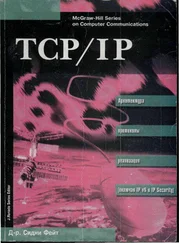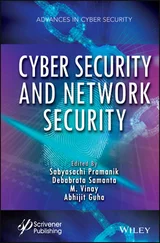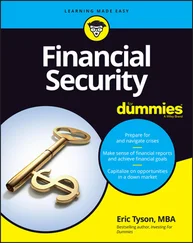3.4.4.2 User abilities and training
Sometimes you can train the users. Password checkers have trained them to use longer passwords with numbers as well as letters, and the effect spills over to websites that don't use them [446]. But you do not want to drive customers away, so the marketing folks will limit what you can do. In fact, research shows that password rule enforcement is not a function of the value at risk, but of whether the website is a monopoly. Such websites typically have very annoying rules, while websites with competitors, such as Amazon, are more usable, placing more reliance on back-end intrusion-detection systems.
In a corporate or military environment you can enforce password choice rules, or password change rules, or issue random passwords. But then people will have to write them down. So you can insist that passwords are treated the same way as the data they protect: bank master passwords go in the vault overnight, while military ‘Top Secret’ passwords must be sealed in an envelope, in a safe, in a room that's locked when not occupied, in a building patrolled by guards. You can send guards round at night to clean all desks and bin everything that hasn't been locked up. But if you want to hire and retain good people, you'd better think things through a bit more carefully. For example, one Silicon Valley firm had a policy that the root password for each machine would be written down on a card and put in an envelope taped to the side of the machine – a more human version of the rule that passwords be treated the same way as the data they protect. The domestic equivalent is the card in the back of your wifi router with the password.
While writing the first edition of this book, I could not find any account of experiments on training people in password choice that would hold water by the standards of applied psychology (i.e., randomized controlled trials with adequate statistical power). The closest I found was a study of the recall rates, forgetting rates, and guessing rates of various types of password [347]; this didn't tell us the actual effects of giving users various kinds of advice. We therefore decided to see what could be achieved by training, and selected three groups of about a hundred volunteers from our first-year science students [2058]:
the red (control) group was given the usual advice (password at least six characters long, including one nonletter);
the green group was told to think of a passphrase and select letters from it to build a password. So ‘It's 12 noon and I am hungry’ would give ‘I'S12&IAH’;
the yellow group was told to select eight characters (alpha or numeric) at random from a table we gave them, write them down, and destroy this note after a week or two once they'd memorized the password.
What we expected to find was that the red group's passwords would be easier to guess than the green group's which would in turn be easier than the yellow group's; and that the yellow group would have the most difficulty remembering their passwords (or would be forced to reset them more often), followed by green and then red. But that's not what we found.
About 30% of the control group chose passwords that could be guessed using Alec Muffett's ‘crack’ software, versus about 10 percent for the other two groups. So passphrases and random passwords seemed to be about equally effective. When we looked at password reset rates, there was no significant difference between the three groups. When we asked the students whether they'd found their passwords hard to remember (or had written them down), the yellow group had significantly more problems than the other two; but there was no significant difference between red and green.
The conclusions we drew were as follows.
For users who follow instructions, passwords based on mnemonic phrases offer the best of both worlds. They are as easy to remember as naively selected passwords, and as hard to guess as random passwords.
The problem then becomes one of user compliance. A significant number of users (perhaps a third of them) just don't do what they're told.
So when the army gives soldiers randomly-selected passwords, its value comes from the fact that the password assignment compels user compliance, rather than from the fact that they're random (as mnemonic phrases would do just as well).
But centrally-assigned passwords are often inappropriate. When you are offering a service to the public, your customers expect you to present broadly the same interfaces as your competitors. So you must let users choose their own website passwords, subject to some lightweight algorithm to reject passwords that are ‘clearly bad’. (GCHQ suggests using a ‘bad password list’ of the 100,000 passwords most commonly found in online password dumps.) In the case of bank cards, users expect a bank-issued initial PIN plus the ability to change the PIN afterwards to one of their choosing (though again you may block a ‘clearly bad’ PIN such as 0000 or 1234). Over half of cardholders keep a random PIN, but about a quarter choose PINs such as children's birth dates which have less entropy than random PINs would, and have the same PIN on different cards. The upshot is that a thief who steals a purse or wallet may have a chance of about one in eleven to get lucky, if he tries the most common PINs on all the cards first in offline mode and then in online mode, so he gets six goes at each. Banks that forbid popular choices such as 1234 can increase the odds to about one in eighteen [296].
Attempts to make passwords memorable are a frequent source of severe design errors. The classic example of how not to do it is to ask for ‘your mother's maiden name’. A surprising number of banks, government departments and other organisations still authenticate their customers in this way, though nowadays it tends to be not a password but a password recovery question. You could always try to tell ‘Yngstrom’ to your bank, ‘Jones’ to the phone company, ‘Geraghty’ to the travel agent, and so on; but data are shared extensively between companies, so you could easily end up confusing their systems – not to mention yourself. And if you try to phone up your bank and tell them that you've decided to change your mother's maiden name from Yngstrom to yGt5r4ad– or even Smith – then good luck. In fact, given the large number of data breaches, you might as well assume that anyone who wants to can get all your common password recovery information – including your address, your date of birth, your first school and your social security number, as well as your mother's maiden name.
Some organisations use contextual security information. A bank I once used asks its business customers the value of the last check from their account that was cleared. In theory, this could be helpful: if someone overhears me doing a transaction on the telephone, then it's not a long-term compromise. The details bear some attention though. When this system was first introduced, I wondered whether a supplier, to whom I'd just written a check, might impersonate me, and concluded that asking for the last three checks' values would be safer. But the problem we actually had was unexpected. Having given the checkbook to our accountant for the annual audit, we couldn't talk to the bank. I also don't like the idea that someone who steals my physical post can also steal my money.
The sheer number of applications demanding a password nowadays exceeds the powers of human memory. A 2007 study by Dinei Florêncio and Cormac Herley of half a million web users over three months showed that the average user has 6.5 passwords, each shared across 3.9 different sites; has about 25 accounts that require passwords; and types an average of 8 passwords per day. Bonneau published more extensive statistics in 2012 [290] but since then the frequency of user password entry has fallen, thanks to smartphones. Modern web browsers also cache passwords; see the discussion of password managers at section 3.4.11below. But many people use the same password for many different purposes and don't work out special processes to deal with their high-value logons such as to their bank, their social media accounts and their email. So you have to expect that the password chosen by the customer of the electronic banking system you've just designed, may be known to a Mafia-operated porn site as well. (There's even a website, http://haveibeenpwned.com, that will tell you which security breaches have leaked your email address and password.)
Читать дальше











